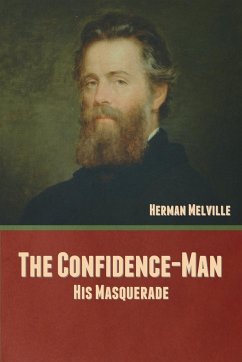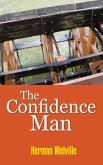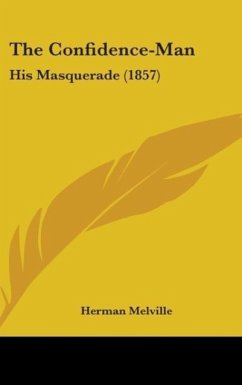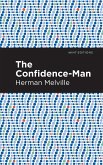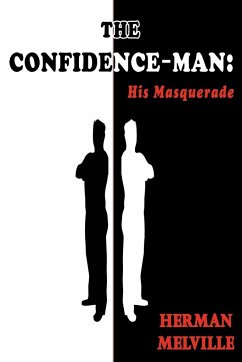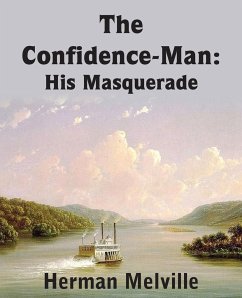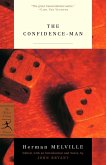The Confidence-Man: His Masquerade, first published in New York on April Fool's Day 1857, is the ninth book and final novel by American writer Herman Melville. The book was published on the exact day of the novel's setting. Centered on the title character, The Confidence-Man portrays a group of steamboat passengers. Their interlocking stories are told as they travel the Mississippi River toward New Orleans. The narrative structure is reminiscent of The Canterbury Tales (1392). Scholar Robert Milder notes: "Long mistaken for a flawed novel, the book is now admired as a masterpiece of irony and control, although it continues to resist interpretive consensus." The novel's title refers to its central character, an ambiguous figure. He sneaks aboard a Mississippi steamboat on April Fool's Day. This stranger attempts to test the confidence of the passengers. Their varied reactions constitute the bulk of the text. Each person, including the reader, is forced to confront the placement of his trust. The novel is written as cultural satire, allegory, and metaphysical treatise, dealing with themes of sincerity, identity, morality, religiosity, economic materialism, irony, and cynicism. Many readers place The Confidence-Man alongside Melville's Moby-Dick and "Bartleby, the Scrivener" as a precursor to 20th-century literary pre-occupations with nihilism, existentialism, and absurdism. The work includes satires of 19th-century literary figures: Mark Winsome is based on Ralph Waldo Emerson, while his "practical disciple" Egbert is Henry David Thoreau; Charlie Noble is based on Nathaniel Hawthorne; and a beggar in the story was inspired by Edgar Allan Poe. The Confidence-Man was probably inspired by the case of William Thompson, a con artist active in New York City in the late 1840s. The novel was turned into an opera by George Rochberg; it was premiered by the Santa Fe Opera in 1982, but was not held to be a success. The 2008 movie The Brothers Bloom, starring Adrien Brody, Mark Ruffalo and Rachel Weisz, borrows some of the plot and makes numerous references to the book: One of the characters is named Melville, the steamer ship is named Fidèle, and the initial mark refers to these coincidences. (wikipedia.org)
Hinweis: Dieser Artikel kann nur an eine deutsche Lieferadresse ausgeliefert werden.
Hinweis: Dieser Artikel kann nur an eine deutsche Lieferadresse ausgeliefert werden.

